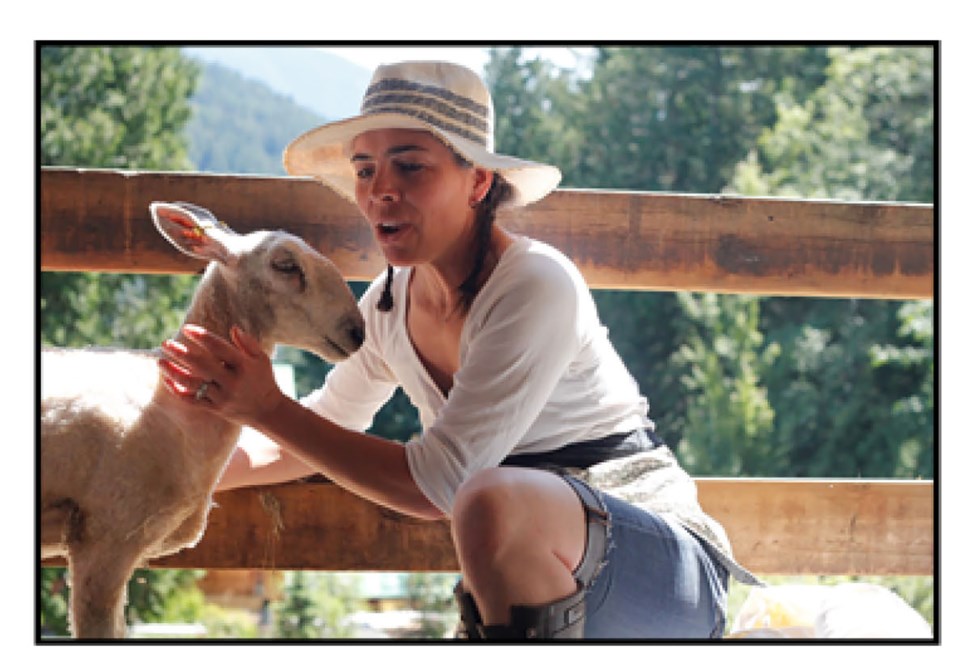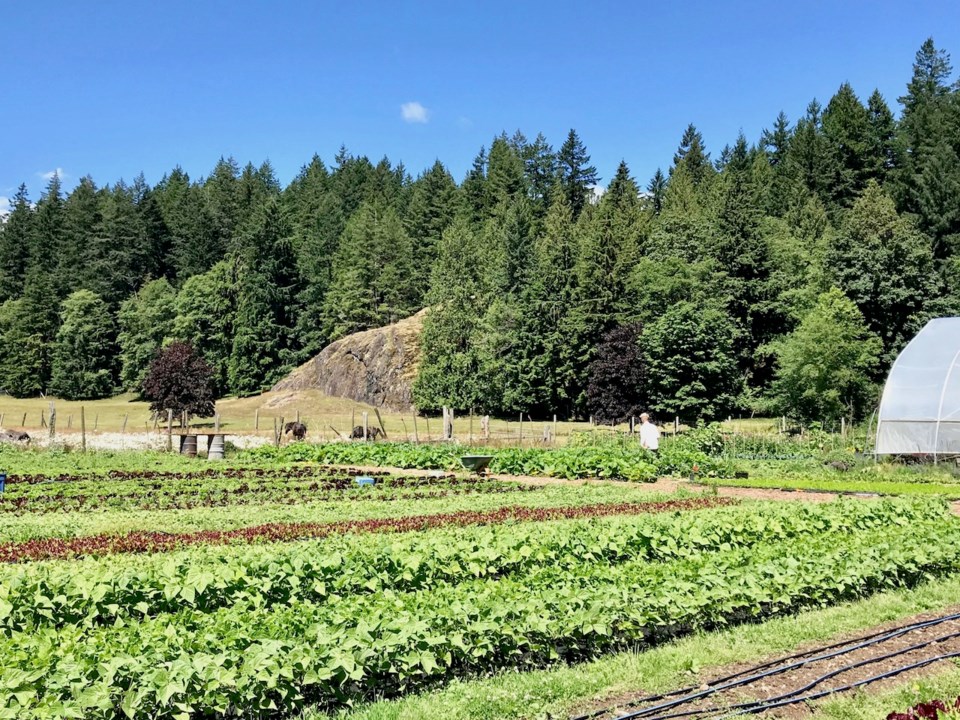Farming is more than an occupation; it’s a relationship with the land, an ongoing honing of knowledge, and often a calling. Unfortunately, here and many other places, it is not a living. This has huge implications for food security on Bowen Island. Our food system is anything but resilient.
Bowen farmers, like others around the world, say they are drawn to farming by its lifestyle and health benefits. “Mental health and spiritual wellbeing are important. Some people do yoga, I farm,” said Bowen’s Star Hoerauf. “I used to be into mountain biking, now I take care of my animals. This is the activity that is most meaningful to me.”

Farming brings a sense of purpose, a connection and feeling of reciprocity with nature, making it a great way to raise kids. If you are not using chemicals, there are health benefits from the outdoor work and the fact that you get to eat food you have grown yourself. Additionally, a big local benefit is that our climate is usually neither too hot nor too cold.
Weather can be unpredictable anywhere but many of the difficulties of farming are particular to the farm’s location. On Bowen, land is very expensive and leasing is an obstacle to making decisions about how to use the land and plan for its future. And as we all know, there are lots of rocks and poor soil here. We also have many cedar trees, which can challenge a farmer, as cedar trees interfere with the growth of other plants.
Then there’s the deer population that has no predators. David Griffiths recounts that he watched while a deer jumped up, got his front legs over the top of his eight-foot fence, and then proceeded to scrabble over the fence to get into David’s market garden.
While local farmers cope with all these obstacles, an additional challenge is the flood of cheap imports. Food produced on factory farms, often with poorly paid labour, arrives on shelves at lower prices than locally produced food. Although there is a small group of people who are very supportive of farmers on Bowen, there is not enough support to make farming financially viable. By far the biggest problem for farmers on Bowen—and many other places—is that they cannot earn a living solely by farming.
The difficulties of farming and the lack of support for locally grown food may account for the fact that in 2016, only 27 hectares of land on Bowen were actively farmed, a drop of 26 per cent from 2011.
Without more local farms, we will remain dependent on the ferry system and crops grown in other areas and countries. Unless we have a thriving food system here, our supply of food will be increasingly insecure as disruptions like the pandemic and the mounting emergency of climate change threaten food exports from other places.
So, how do we change things and create a more resilient food system here on our own home territory? We have grocery stores and restaurants that all work to a very tight bottom line. We have farmers that must have other incomes to be able to farm. We have big store delivery companies who can sell food cheaper than our local growers.
We also have some champions like Sarah Haxby of Bowen Agricultural Alliance and Rosie Montgomery and Noah Pryce-Jones of Home Farm who have dedicated much time to developing a sustainable local food supply. Yet, we have not succeeded in achieving financial resiliency for our farmers. We—farmers, grocers, restaurateurs and consumers—have to find ways to support and sustain each other. Let’s open up the conversation about how we can work together to create a resilient, food-secure future on the island we call home.



